
Shelagh Fogarty 1pm - 4pm
16 September 2019, 07:40
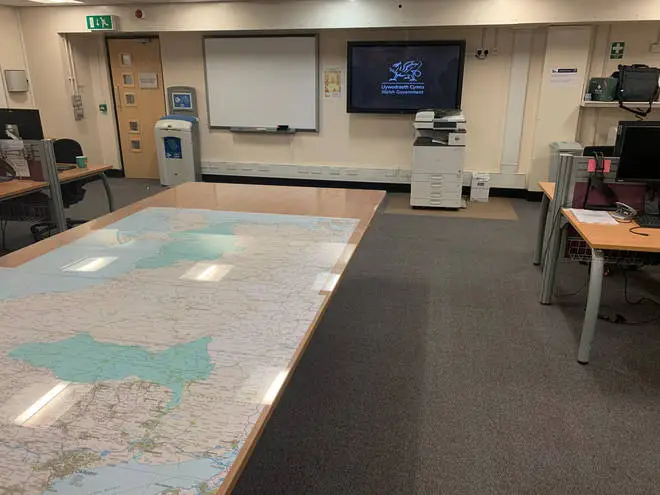
Tucked away within the bowels of the Welsh Government's offices in central Cardiff is a room like no other in the building, maybe no other in the country.
Most people would pass it without a second's thought.
Down a set of stairs and through a pair of wooden double doors is the 'situation room' - an area that is now getting ready for the potential fall-out of a no-deal Brexit.
The Welsh Government is keen to show its readiness , and Global's Newsroom was invited inside for a sneak peak.
For months, Welsh ministers have issued statement after statement warning of the implications of a disorderly departure from the EU.
But the message is always counter-balanced with one of how the executive in Wales is taking steps to prepare for the worst.
Prime Minister Boris Johnson has repeatedly insisted his preferred option is to leave with a deal but that the UK is exiting on October 31st with or without an agreement.
"When this is mobilised something horrible is normally happening", a civil servant says as Global's Newsroom reporters enter.
In the centre of the room, there is a table-top map of Wales. Reminiscent of the Battle of Britain, It's the type you might imagine to have in a war film with top generals moving around small model tanks to mimic troop formations.
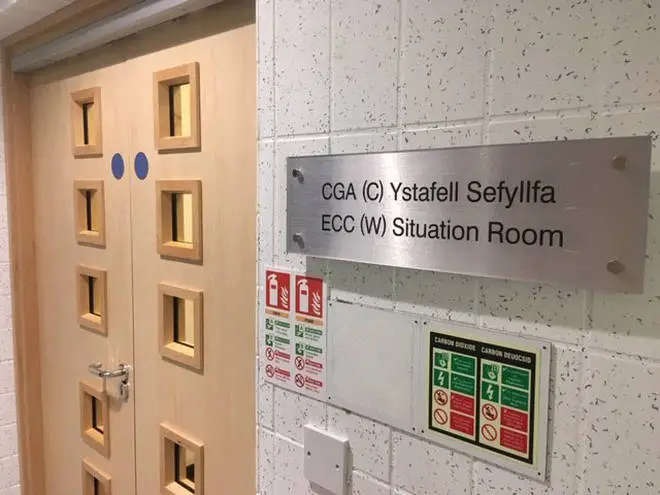
The room is silent for now but 14 days before the Brexit date it will be bustling with civil servants, politicians and members of the emergency services.
Since the publication of the Government's Brexit Yellowhammer documents, it's an image that's not hard to envisage.
"This is essentially what would be mobilised in the event of a no-deal Brexit", a civil servant says.
"When we had the NATO conference, when we had the Champions League final - all of this was mobilised because we needed to bring together all the public agencies in case something happened.
"A good example of when we mobilised this [facility] is the Beast from the East.
"The weather was so bad and so concentrated in a particular part of Wales that the local responders were overwhelmed by the scale of the event.
"That was when the Welsh Government and civil contingencies stepped in to say 'OK - how do we bring those organisations together?'"
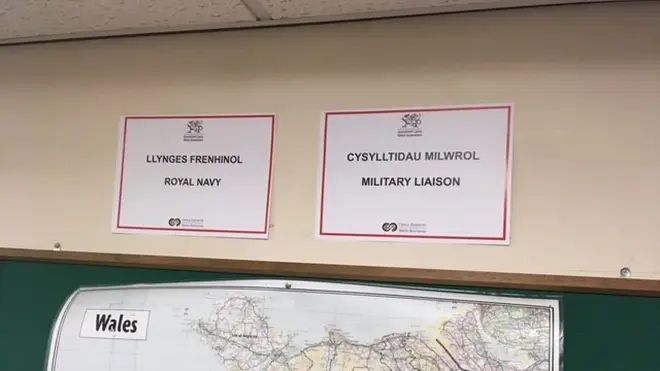
The bunker is split into three different rooms: Communications, Partner Agencies and the cabinet room.
It can handle 200 people when fully staffed and can run on a 24/7 basis.
There are desks everywhere. All have computers on top with phones next to them. Flat-screen televisions are fixed to almost every wall.
We're taken into the Partner Agencies room, which is much larger and contains more desks and computers.
Dotted around the room are signs on the walls indicating where the police, military, public health and others will be stationed.
"We're planning to begin running this probably a fortnight before [the Brexit date]", the civil servant adds.
"First it will be long shifts. Early in the morning until late at night.
"Then a week for the Brexit date, we will be mobilising on a 24 hour, seven days a week basis," he says.
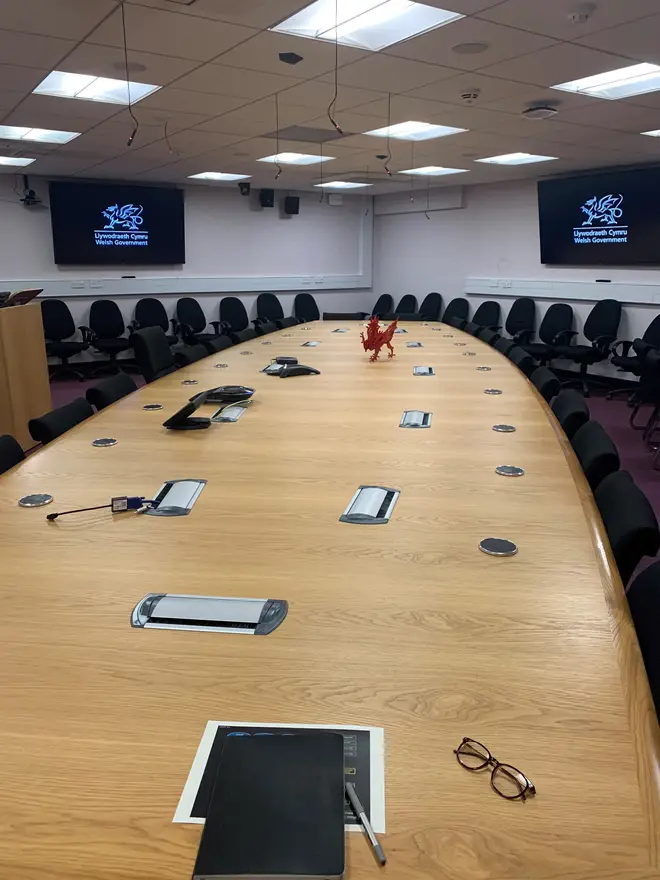
Next, Global's Newsroom reporters are taken into the Cabinet room. It's impressive with a large oval conference desk in the centre which is surrounded by chairs.
Microphones are suspended from the ceiling while cameras and televisions are in positions all around the room.
The 'bunker' has a direct line to the Cabinet Office in Downing Street and, at times, is used for COBRA meetings.
COBRA is the UK Government's Cabinet Office Briefing Room where Ministers and officials meet to deal with national emergencies, from the Foot and Mouth epidemic to terrorist attacks.
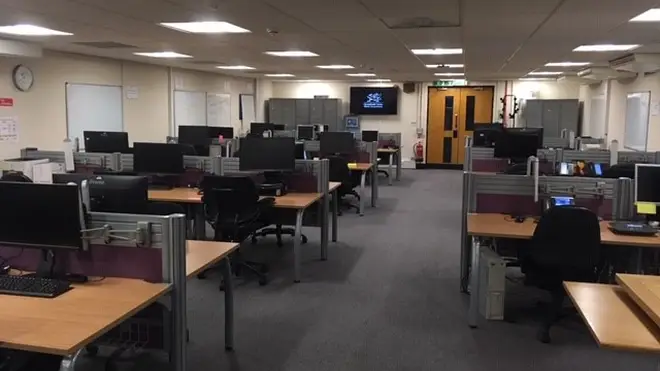
A second civil servant close to the Welsh Government working on Brexit arrives in the room.
"How much time is being dedicated to preparing for no-deal?" Mike Huges asks.
"We're triple running" he replies. Deal, no-deal or no Brexit.
"We have to keep an eye on what would happen if we did stay in - if Brexit hadn't happened at this stage in the political cycle we would be three-quarters of the way through preparing for the next round of EU programmes.
"We would have had significant expenditure on I.T. systems for the news Common Agricultural Policy, structural funds, and all of those issues.
"None of that work has really progressed but we need to understand what it is and if it happened how would we pick that up.
"If there's any kind of further extension or remaining then actually we'd have to play catch up very quickly on all those issues," he continued.
"As and when there's an exit, there's a potential role for devolved administrations in those negotiations because some of the delivery and implementation issues are devolved.
"There's hundreds of types of issues where actually we've got a delivery responsibility and an interest and ministers in Westminster are often the government of England.
"And if they could go to Brussels without a kind of agreed U.K. position that they are not negotiating on behalf of the whole of the UK.
"Crucially, the people they're negotiating with wouldn't have confidence in the person on the other side of the table being able to deliver what they're talking about if they haven't got a credible story of how that's going to play out in Scotland, Northern Ireland and Wales.
"We haven't been able to completely step away from thinking about the negotiations and how they would all happen.
"There's another strand as well which is - say after you've left, what are the domestic arrangements within the UK to actually make the union of the United Kingdom function?
"But in terms of what's most pressing? What's most urgent? Where is most of the effort going? Central planning assumption at the moment is no-deal."
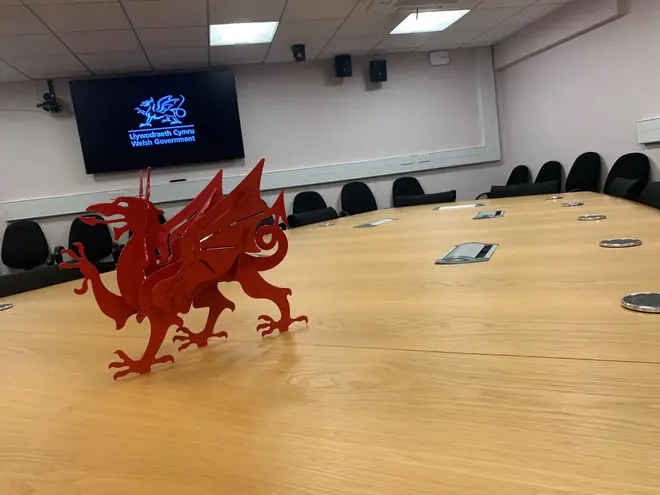
Additional reporting by EJ Ward